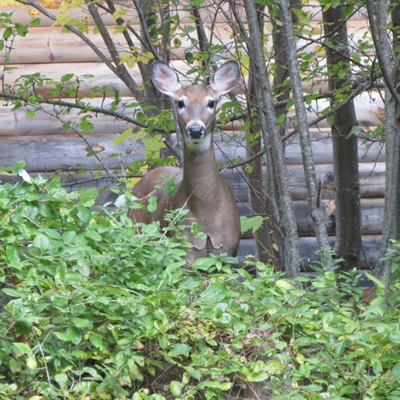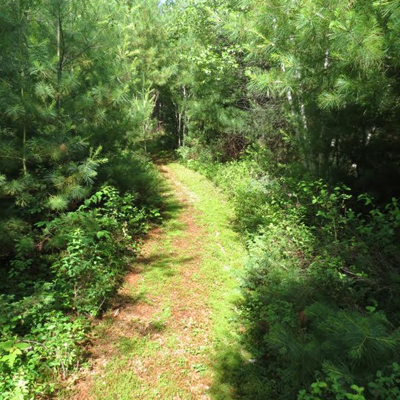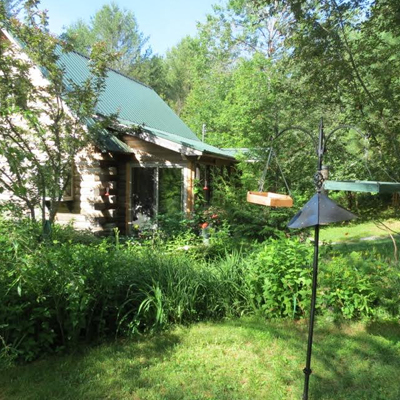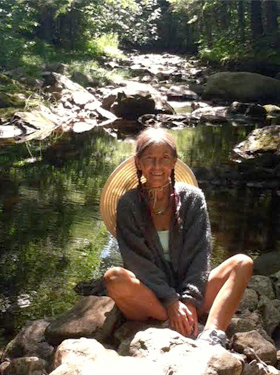December 2015, Issue #3
EXTINCTION/DEVOTION
TABLE OF CONTENTS
Editorial
Lise Weil
 Kristin Flyntz
Kristin Flyntz
I. EXTINCTION
Debra Magpie Earling
From The Lost Journals of Sacajewea
Melissa Kwasny
After•Word from Ghost Dance: the Poetics of Loss (Debra Magpie Earling)
Naeemeh Naeemaei
Dreams before Extinction
Deena Metzger
Our Radiant Lives
Mary Sutton
Her Body is Burning
Naomi Shihab Nye
My Grandmother Said
 Netanyahu
Netanyahu
Lena Khalaf Tuffaha
Arrest
Sara Wright
Tree Holocaust
Beverly Naidus
Curtain Call: Portable Altars for Grief and Gratitude
Marilyn DuHamel
Turning Point
Susan Cerulean
Bear Requiem
Margo Berdeshevsky
Our Safe Word
II. DEVOTION
Mei Mei Sanford
Serach Bat Asher Speaks
Lise Weil
First, a Mother: Interview with Megan Hollingsworth of
ex•tinc•tion wit•ness
Caroline Casey
Beauty from Brokenness: Interview with Lily Yeh
Sharon English
After•Word Our Call to Indigenous Consciousness: Taiaiake Alfred’s Wasáse
Cynthia Anderson
From the Beginning
 Nova
Nova
Anne Bergeron
Calling out the Names
Julie Gabrielli
Song of the Chesapeake
Nora Jamieson
I am Nothing without my Dead
Patricia Reis
After•Word Nora Jamieson’s Deranged
Rebecca Brams
The Bone in My Yard: a Story-Carrier’s Path
Lise Weil
Listening to Natural Law: Interview with Ayya Santacitta
Courtney Cable
After•Word Kenny Ausubel’s Dreaming the Future
Cynthia Travis
Offerings
Sara Wright
Tree Holocaust
Almost 30 years ago, I stepped out of the car in pouring rain and fog so thick it enveloped me instantly in a misty shroud. I let the roaring brook guide me to the edge of the field where I peered down at a red deer who raised his new rack of moss-covered antlers to meet my gaze. We stared at each other in mutual wonder as water flooded the emerald banks of this sinuous mountain brook. Although the rest of the landscape was obliterated by fog, I understood that this piece of earth knew me in some inexplicable way, and was calling me home.

Three months later this patch of woods and brook with its field overlooking the mountains became mine. From the beginning the land held and spoke to me even as I gathered sweet summer berries. Here under my feet pulsated the body of the mother I had never known. Although She remained invisible, I knew I was loved because I could sense Her as I touched each plant, flower and tree, took in each breath of clear mountain air, or wandered over the steep granite speckled field to visit with the foxes near their den. The very next year I constructed a very small twelve by eight foot camp in the woods next to the brook and fifteen years later built the small log cabin in which I have lived ever since.
One day driving home from town that first summer I felt compelled to explore a mountainous area that had been brutally logged. Baffled as to why I felt so driven to get close to this tree holocaust, I climbed the steep hill, parked the car, got out, and almost immediately stumbled and fell; I could barely manage to navigate the piles of slash. I kept moving until I became hopelessly entangled in this human-induced wreckage. Then I collapsed in a heap. Death rose up from the ground. The severed trunks and limbs wept, the smell of pitch was nauseating. Why in god’s name had I come here? The question hung in dead air. A great hole had opened in the sky where the trees once stood. I staggered back to the car scratched and bleeding. The sight of such mindless annihilation was impossible to process.
Coming home to my sanctuary didn’t erase the image of tree devastation that seemed to have imprinted itself on me; I was haunted by the images of dying trees and the wrenching grief I had experienced standing on that piece of land. That night I had a dream.
I am standing in the middle of tree destruction overcome by a profound sense of hopelessness. A transparent image of my land seems to superimpose itself on the logged land, floating down and settling over but not obliterating the hideous slash. I can still see the wreckage below but the upper transparent layer of my land is tranquil.

When I awakened from the dream I was free from the horrific imprinting and looked around with a heart bursting with gratitude for clear waters rushing over stone, for leafy green maples, oaks, beech, birches, wild fruit trees, alders, witch hazel, pine, balsam, cedar, hemlock, and spruce. I wondered if the dream was suggesting that although I might be powerless to stop the logging, I could help the Earth and my newly found mother by loving my land and her trees? The idea seemed credible at the time and I attached myself to its hope like a barnacle.
Oddly, the dream of the two landscapes stayed vivid and clear often surfacing in my mind. But I was troubled by the apprehension that flowed through me in its wake. I continued to comfort myself with the thought that I could interrupt tree destruction by loving my land, and by honoring all trees.
It wasn’t until after spending prolonged periods at my camp, “elf house,” that I began to have strange unsettling repetitive dreams about ‘my’ land and our future together. Most of these dreams involved boundary violations. Trees were being cut on the back boundary of my property, thugs on machines also entered from behind my camp. Aggressive neighbors built houses around me and they had guns. These neighbors disliked me and wished me harm.
I felt fear, confusion, and dismay as I awakened from these dreams wondering what they could possibly mean. This land and I were wed to one another; each bird, tree, flower and bush was sacred to me. I experienced joy and gratitude on a daily basis. Why such dark and ominous dreams?
A few years passed before I first started to hear the whining sound of a chainsaw in the distance on a regular basis. Most folks around here including myself heat with wood, so early in the fall whenever I walked up the hill to the road I could hear my neighbors saw their wood for the coming winter, but thankfully these sounds were drowned out around my camp by rushing water and the surrounding forest. When the sound of the chainsaw first penetrated my little patch of wilderness I felt invaded by something sinister. Just as disturbing was the way my body responded to the high - pitched chainsaw whine: by going on high alert until the wail ceased for the day. I also experienced a peculiar buzzing throughout my body. I was unable to calm myself.
I felt compelled to find out exactly where the noise was coming from. One of my neighbors, I soon discovered, had just retired and was logging the entire mountain behind him, a mountain that happened to be located across the road from me. It took him a number of years to strip his mountain of trees, because logging was to him a recreational pastime. I felt such relief whenever the wind drowned out the buzz of the ever -present chainsaw. With increasing distress whenever I walked up the woods road I witnessed new patches of raw earth crisscrossed by tree bodies that left new holes in the sky. After a season or two, during the summer, each bare area was covered over by the lush green leaves of slender saplings attesting to Nature’s will to live and withstand harsh treatment. The winter told a different story; the craggy mountain was clearly visible down to its bare granite bones. In my dreams whole forests disappeared, while in day life my relationship to trees deepened, and became more personal as I wrote poems and stories about them. Being sheltered by trees became an obsession. I began to wonder uneasily if my dreams had been casting a net around a future that I was starting to live…
At first I thought it was my imagination that I could hear the trees screaming as trunks and branches were severed from their roots by giant machines as I walked down logging roads. But when they cried out in my dreams, I started to pay closer attention to the collective wailing I thought I heard during the day, and my disbelief collapsed. I am not sure where I got the idea that the way I could help trees the most was to listen to their dying but I came to believe and accept that it was true, even though this witnessing forced me out onto the edge of my own despair.
Each year the assault on the trees escalated. Huge skidder marks now ran in parallel lines up and down the sides of some mountains, leaving deep scars on the surface. These ruts would become silt-laden waterways removing precious topsoil from the mountains during the spring melt. More and more logging trucks thundered down the winding roads, swaying dangerously. The hawks and owls and many other birds that once inhabited the surrounding forests disappeared as they lost precious habitat. Whenever I attempted to bring the plight of our shrinking forest to anyone’s attention I was told that Maine had one of the largest forests in the country, that a hundred years ago all these mountains were cleared for farming, or most distressing, that I was a pessimist, wedded to a dark way of seeing.
Ten years ago we all crossed an invisible boundary. The price of lumber went up. Suddenly the logging companies stripped whole mountains in a matter of weeks and virtually every neighbor of mine except three closest to me stripped his/her land of every tree larger than a sapling. At any time of the year, I would be awakened by screaming trees and skidder machines and the earth-shaking thuds of tree trunks crashing into the ground.

When the back boundary of my precious land was brutally logged for the first time I made a pilgrimage through my woods up to the ridge. I wept, said prayers for the dying trees, felt the holocaust permeate every cell in my body. I repeated this pilgrimage only once, when the screeching skidder machines returned a second time to mow down more saplings to get to the last of the Elders, those that used to be my boundary trees.
When I discovered that our local land trust brokered a deal to buy a giant parcel of this same mountain for adult recreational purposes as long as the conservation group agreed to having the land logged first I was stunned. This meant nearly the whole of Moody Mountain, not just a few parcels. I loved this mountain with her ragged granite cliffs, her caves, her springs and brooks, the comfort of her presence; she had sheltered me for many years. If our local land trust conservation group logged our forests (for their profit) and in exchange gained property that was already logged for recreational purposes there was no hope.
I protested, was patronized, and ultimately dismissed by our local conservation group. Acquiring land for wilderness’ sake was not a priority, while stripping the land of its trees and then opening it to four-wheelers and other off road vehicles and for hunting--creating adult playgrounds—was supported with great enthusiasm.
By this time I understood that my relationship with all trees was unusual. I had spent many thousands of hours with trees, blessed and prayed for them in written ritual, talked to them, mourned their losses, found shelter beneath them, listened with my heart opened by the light that I could sometimes feel pulsing through their branches. I loved them and they knew it. At first I was unable to separate their grief from my own and this confusion muddied conversation between us, which upset me a lot. The trees had enough to deal with; they did not need the burden of my psychological projections.
I talked to a few of these tree mothers in my mind, asking them to help me discern. They answered by creating what I can only describe as a light field around me, a field permeated with deep compassion. While in this Presence, I attempted to feel my way through their grief and separate it from my own. They had lost almost all their Elders and a multitude of children, experienced ongoing distress for their remaining relatives. Despair was a given.
While writing a letter to protest logging parts of the White Mountain National Forest (supposedly protected wilderness) last spring, I checked Global Watch and discovered that Maine had only sixteen –eighteen percent of mature forest left in the state. Maine foresters suggest that a tree is mature at thirty years old. Are they serious? No one mentions that nut-bearing trees like beech and oak don’t begin to produce viable crops of nuts until they are much older. In Northern Maine the demise of the only nut-bearing tree, the beech, is creating a cyclic starvation scenario for the black bear who is dependent upon its fall mast to survive. Ironically, The Nature Conservancy of Maine has only one small (a few acres) stand of old-growth trees protected in the northern part of the state but it is impossible to access because these trees are in the middle of a huge area that is logged all year round.
Early this spring one of my two closest neighbors began to cut away the glorious crowns and limbs of all the dense white pines on his side of the road leaving bare trunks open to the sky. This man, a security guard by profession at a local ski lodge and his wife, who works there as a waitress, both dislike me (for reasons that remain totally obscure), and at first I suspected that this mutilation of the trees by the road was his way of making a statement to me. He deliberately threw severed limbs onto the road that I walked up each day. It was chilling to watch the way he beheaded each tree and then stripped the trunk of its limbs leaving them in piles to rot. I knew that it took years for a tree to die in this manner. Since most of the initial cutting occurred near the road, I witnessed and grieved for the dismembered trees every time I walked my dogs.
In May when the mutilation began on my other neighbor’s property I asked Mary why she would allow this to occur on her land. It wasn’t as if the chopping would open a view (for either neighbor). Mary’s response dumbfounded me. She denied that any cutting was happening on her land. Every day with my heart in my throat, I walked up the road cringing. Birds screeched as their nests were systematically destroyed during nesting season, eggs smashed, chicks left for dead on the ground, keening heartbroken parents left behind. And after the road destruction was complete Mike began to open a huge area around Mary’s house. Piles of slash lay everywhere, and the nauseating smell of pitch intensified as more trees lost their crowns and some limbs (most of their trunks were left standing with a few sparse branches remaining). In late July, the next and final time I spoke to Mary, she finally admitted she was opening the area up around her house because she felt so claustrophobic.
I am doing my best to accept the carnage that is creeping towards my front door. For whatever reason, I believe I was called to this land to witness our future. Precognition, a so-called “paranormal” ability, seems to be an ongoing reality in my life. The dream of an image of my land superimposing itself on desecrated earth warned me that things were not as they seemed, that under peace lay heartbreak. Because of the trees I have witnessed my own suffering in the context of that which is greater than my personal story.
But what about the trees? When I listened to the trees, I was surprised to learn that it wasn’t collective tree death that was the worst problem for them; it was their invisibility as living beings that distressed them the most. The trees had given up on humans--although they were still able to feel compassion for us as a species because they considered us so lost. (How is this even possible, I wonder.) I was astonished at the depth of their gratitude for me just because I could see and hear them. I felt ashamed because these simple gestures seemed so inadequate.
This brings me around to the beginning of my story and the hope I hung on to for so many years. My initial impression/interpretation of the dream was incorrect. I understand now that loving my land was not meant to be enough. I was not going to be able to heal devastation with love although it mattered that I cared about my land. I was being called to witness for the trees in both their wholeness and brokenness. Witnessing matters regardless of personal feelings or outcome. It is only when we are truly able to see the trees in whatever shape they are in, and stay in the truth of what we see, that Love with a capital “L” becomes possible.
I have recently made a decision to sell this house and land and to leave this area. I am leaving not because of what is happening to the trees, although a circle is closing for me. I came in joy and will leave in sorrow. The noise is untenable. In this valley alone there is daily target- shooting, often with high- power rifles and machine guns. At night there are fireworks and unpredictable explosions. In summer in order to escape the noise I have to keep my windows shut and when the gunning is at its worst I have to wear ear protectors. The winters are long and harsh and unfriendly neighbors make living here more difficult than it has to be.
Where will I go? I think the answer to that question is less important than my understanding that wherever I go I will be called to witness Nature’s sorrow. From now on I will make this choice willingly. It’s all I have to give, and in that giving of myself I participate in the Great Round of life in a way that matters to the Earth and to me.
 Sara Wright - is a naturalist and a writer. Presently she lives in a log cabin by a brook with two small dogs and one dove. She writes about the animals and plants that live on this property and publishes them monthly in her nature column in The Bethel Citizen. She has also written for Trivia: Voices of Feminism www.triviavoices.com, and Return to Mago www.magoism.net. She has Passamaquoddy roots, which may or may not be why she has dedicated her life to speaking out on behalf of the slaughtered trees, dying plants and disappearing animals. Please visit her blog “Over the Edge and Beyond: Journal of a Naturalist.” sarawrightnature.wordpress.com
Sara Wright - is a naturalist and a writer. Presently she lives in a log cabin by a brook with two small dogs and one dove. She writes about the animals and plants that live on this property and publishes them monthly in her nature column in The Bethel Citizen. She has also written for Trivia: Voices of Feminism www.triviavoices.com, and Return to Mago www.magoism.net. She has Passamaquoddy roots, which may or may not be why she has dedicated her life to speaking out on behalf of the slaughtered trees, dying plants and disappearing animals. Please visit her blog “Over the Edge and Beyond: Journal of a Naturalist.” sarawrightnature.wordpress.com
Want to comment on any Issue of Dark Matter, fill out the form here.
Copyright © 2014-2021 Dark Matter: Women Witnessing - All rights reserved to individual authors and artists.
Email: Editor@DarkMatterWomenWitnessing.com
Please report any problems with this site to webmaven@DarkMatterWomenWitnessing.com
